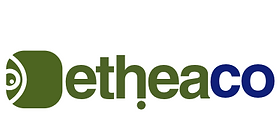NDIS Compliance Tips for Human Service Providers
- Natalie Koehler

- Jul 30
- 4 min read
Navigating the National Disability Insurance Scheme (NDIS) can be a daunting task for human service providers. With the ever-evolving regulations and compliance requirements, it is crucial to stay informed and proactive. This blog post aims to provide practical tips to help you ensure compliance while delivering quality services to your clients.
Understanding NDIS Compliance
NDIS compliance refers to the adherence to the rules and standards set by the NDIS Quality and Safeguards Commission. These standards are designed to protect the rights of people with disabilities and ensure they receive safe and high-quality services.
Compliance is not just about following rules; it is about creating an environment where clients feel valued and supported. Understanding the core principles of NDIS compliance is the first step toward achieving this goal.
Key Principles of NDIS Compliance
Rights of Participants: Every participant has the right to dignity, respect, and choice. Providers must ensure that their services uphold these rights.
Quality and Safety: Services must be delivered in a way that prioritizes the safety and well-being of participants. This includes regular training for staff and maintaining a safe environment.
Transparency: Open communication with participants and their families is essential. Providers should be clear about the services offered and any associated costs.
Continuous Improvement: Providers should regularly assess their services and seek feedback to improve. This can involve surveys, focus groups, or informal conversations with clients.
Tips for Achieving NDIS Compliance
1. Stay Informed
Regulations can change, so it is vital to stay updated on NDIS policies. Subscribe to newsletters, attend workshops, and participate in relevant training sessions.
Regularly reviewing the NDIS website can also provide valuable insights into any changes in compliance requirements.
2. Develop a Compliance Framework
Creating a compliance framework can help streamline your processes. This framework should include:
Policies and Procedures: Document your policies regarding participant rights, safety, and quality of service.
Training Programs: Implement regular training for staff to ensure they understand compliance requirements and best practices.
Monitoring and Evaluation: Establish a system for monitoring compliance and evaluating the effectiveness of your services.
3. Engage with Participants
Engaging with participants is crucial for understanding their needs and preferences. Regular check-ins can help you gather feedback and make necessary adjustments to your services.
Consider using surveys or feedback forms to collect information on participant satisfaction. This data can be invaluable for improving your services and ensuring compliance.
4. Foster a Culture of Compliance
Creating a culture of compliance within your organization is essential. Encourage staff to prioritize compliance in their daily activities.
Recognize and reward employees who demonstrate a commitment to compliance. This can motivate others to follow suit and create a more compliant environment.
5. Conduct Regular Audits
Regular audits can help identify areas for improvement. Schedule internal audits to assess your compliance with NDIS standards.
During these audits, review documentation, interview staff, and observe service delivery. This process can help you pinpoint any gaps in compliance and address them promptly.
The Role of Technology in Compliance
Technology can play a significant role in achieving NDIS compliance. Consider using software solutions that can help streamline your processes.
For example, case management software can assist in tracking participant information, service delivery, and compliance documentation.
Additionally, online training platforms can provide staff with easy access to training materials and resources.
Building Strong Relationships with Stakeholders
Building strong relationships with stakeholders is essential for compliance. This includes participants, their families, and other service providers.
Regular communication can help ensure everyone is on the same page regarding service delivery and compliance expectations.
Consider hosting community events or workshops to engage with stakeholders and gather feedback.
The Importance of Documentation
Proper documentation is a cornerstone of NDIS compliance. Ensure that all records are accurate, up-to-date, and easily accessible.
This includes:
Participant Records: Maintain detailed records of each participant's needs, preferences, and service delivery.
Incident Reports: Document any incidents or complaints and the actions taken to address them.
Training Records: Keep track of staff training and professional development activities.
Having thorough documentation can help demonstrate compliance during audits and inspections.
Preparing for NDIS Audits
Being prepared for NDIS audits can make the process smoother. Here are some tips to help you get ready:
Review Policies and Procedures: Ensure that all policies are current and reflect your practices.
Conduct Mock Audits: Consider conducting mock audits to identify any potential issues before the actual audit.
Train Staff: Ensure that all staff members understand their roles during the audit process.
Gather Documentation: Collect all necessary documentation in advance to avoid last-minute scrambling.
Engaging in Continuous Improvement
Continuous improvement is vital for maintaining compliance. Regularly assess your services and seek feedback from participants and staff.
Consider implementing a quality improvement plan that outlines specific goals and strategies for enhancing service delivery.
Example of Continuous Improvement
For instance, if feedback indicates that participants feel they lack choices in their services, consider expanding your service offerings.
This could involve providing additional activities or programs that align with participants' interests and preferences.
Conclusion: Embracing Compliance for Better Services
Achieving NDIS compliance is an ongoing journey that requires dedication and effort. By staying informed, developing a robust compliance framework, and engaging with participants, human service providers can create a supportive environment that prioritizes the rights and needs of individuals with disabilities.
Remember, compliance is not just about meeting regulations; it is about fostering a culture of respect, safety, and quality service. By embracing these principles, you can enhance your services and make a positive impact on the lives of your clients.

.png)


Comments